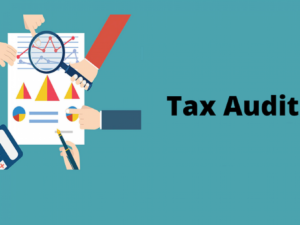
The Primary Purpose of a Tax Audit Report for Transport Services in the Context of Goods and Passengers
Transport services play a vital role in the economy, facilitating the movement of goods and passengers across regions. For businesses involved in transport services, compliance with tax regulations is crucial. A tax audit report serves as an essential tool in this compliance process, ensuring that these businesses adhere to the applicable tax laws and regulations.
Ensuring Tax Compliance
The primary purpose of a tax audit report for transport services is to verify that the business has accurately reported its income and expenses, and has complied with all relevant tax obligations. This includes ensuring that the business has correctly calculated and paid taxes such as income tax, goods and services tax (GST), and other applicable local taxes.
Accuracy and Transparency in Financial Reporting
A tax audit report provides a detailed review of the financial records of a transport service provider. This review ensures that all financial transactions related to the transport of goods and passengers are accurately recorded and reported. By doing so, the tax audit report helps in maintaining transparency and accuracy in financial reporting, which is essential for both regulatory compliance and the trust of stakeholders.
To visit: https://www.incometax.gov.in
Detection and Prevention of Fraud and Errors
Through a thorough examination of financial records, a tax audit report helps in detecting any discrepancies, errors, or potential fraud. This is particularly important in the transport sector, where transactions can be numerous and complex. Identifying and addressing such issues promptly can prevent financial losses and legal penalties.
Evaluation of Operational Efficiency
A tax audit report not only assesses compliance with tax regulations but also provides insights into the operational efficiency of the transport service provider. By examining the costs and revenues associated with transporting goods and passengers, the audit can highlight areas where the business can improve efficiency, reduce costs, and enhance profitability.
Facilitating Better Decision-Making
The insights gained from a tax audit report can inform better decision-making for transport service providers. By understanding their financial standing and compliance status, businesses can make informed decisions about future investments, operational changes, and strategic planning.
Meeting Regulatory Requirements
Transport services, like all businesses, must comply with various regulatory requirements. A tax audit report ensures that the business meets these requirements, thereby avoiding potential legal issues and fines. Regular audits can also help businesses stay updated with any changes in tax laws and regulations.
Enhancing Credibility with Stakeholders
A clean tax audit report enhances the credibility of the transport service provider with various stakeholders, including investors, creditors, customers, and regulatory authorities. It demonstrates the business’s commitment to transparency, accuracy, and compliance, which can strengthen relationships and build trust.
Conclusion
In summary, the primary purpose of a tax audit report for transport services in the context of goods and passengers is to ensure tax compliance, maintain accuracy and transparency in financial reporting, detect and prevent fraud and errors, evaluate operational efficiency, facilitate better decision-making, meet regulatory requirements, and enhance credibility with stakeholders. By fulfilling these purposes, a tax audit report plays a crucial role in the successful and compliant operation of transport service businesses.
For further details access our website: https://vibrantfinserv.com